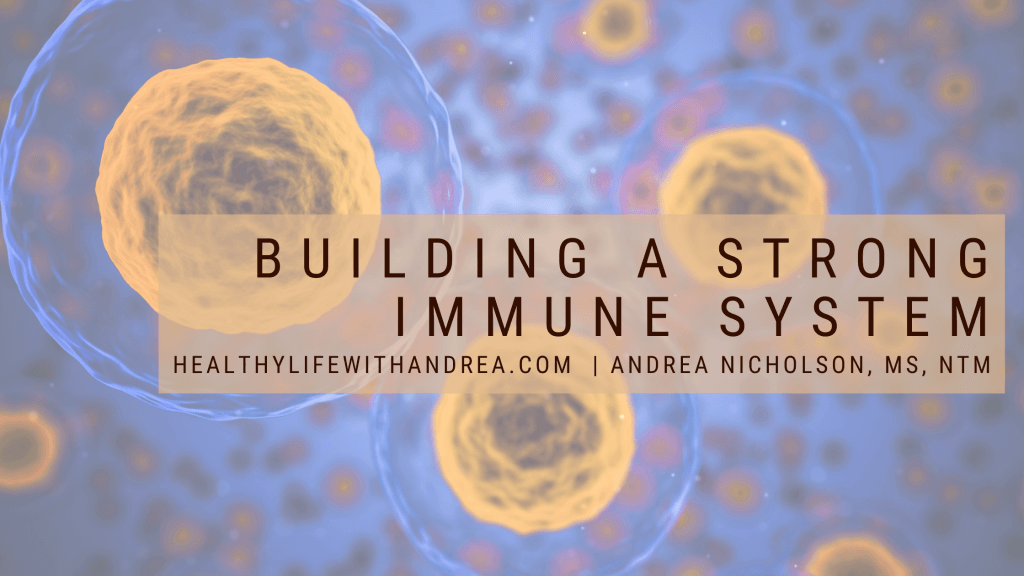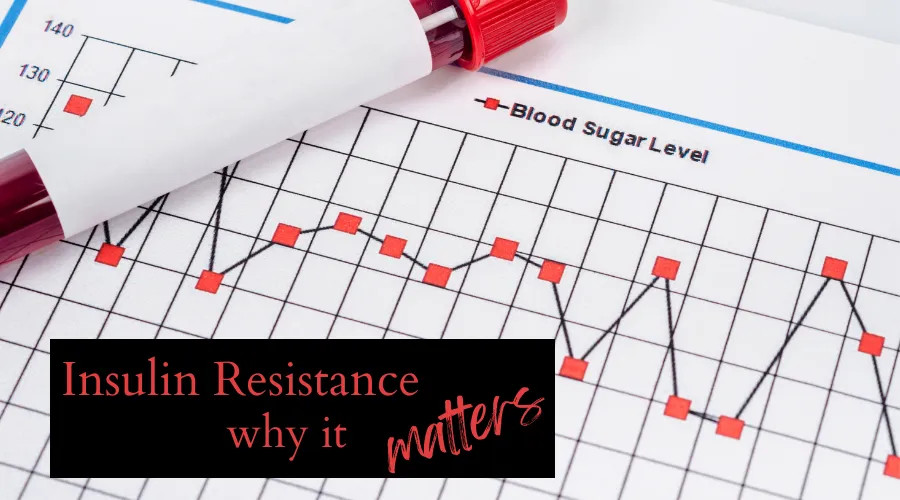
What is the immune system?
The immune system is a complex, tightly regulated network of organs and cells that work together to fight off infections and other foreign invaders. Your body’s immune system is made up of specialized cells and organs that form its defense mechanisms against harmful invaders like bacteria or viruses. Building a strong immune system can help keep you healthy and vital against many infections.
The immune system has two main components: innate immunity and adaptive immunity.
- Innate immunity consists of physical or defense barriers such as skin and mucus; chemical barriers such as stomach acid, which can kill some bacteria; and inflammatory responses that are part of the body’s response to infection. This type of immunity is non-specific; anything foreign can be targeted.
- Adaptive immunity, on the other hand, involves B-cells and T-cells that recognize specific foreign invaders and mount an attack. This type of immunity is specific to a particular invader since the body creates memory of the foreign invader from the first exposure to it.
Vaccines work on the principles of adaptive immunity – by providing the body with either a piece of the infectious agent or a killed version of the infectious agent in order for your body to mount an immune response against it. Later, if you come in contact with that infectious agent again, you will have “memory” of that agent and be able to more specifically attack it. This is also why vaccines don’t always work – they don’t expose you to the entire agent, only a portion or a killed version.
Sometimes mutations can occur in the circulating agent that bypasses the vaccine immunity. It is also important to note that your immune system must be functioning properly to build adequate immunity against the agent. Studies have shown that obese subjects are unable to mount an appropriate attack when given the flu shot, for example. It is important to remember that vaccines aren’t a magic bullet. The body must be metabolically healthy in order to provide the materials and energy to produce the immune cells.
Let’s talk now about strategies to build a strong immune system.
Drink Lots of Water
Your body is about 60% water, so if you’re not drinking enough H2O it can affect your immune system in many ways. Not only does water help flush toxins from the body, but it also helps to keep everything moving along smoothly by providing lubrication for joints and organs. Common advice is to drink eight 8oz glasses per day, however, our hydration isn’t that simple. Depending on our lifestyle, how we feel, and what we do throughout the day will affect how much water we need to drink. If you are exercising, doing manual labor, or live in a hot or dry environment you’ll need more than a sedentary person in a cool, humid environment.
One way to tell if you’re dehydrated is that your urine will be dark-colored, but this isn’t a hard-and-fast rule. There can be other reasons why your uring is dark in color. Another quick and easy indicator-your skin! If you pinch the skin on the back of your hand and let go, does it spring back to normal quickly or does it stay pinched? If it stays pinched you’re likely dehydrated, so you have lost some elasticity.
Get Enough Sleep
Studies have shown that sleep influences the immune system as well. Getting adequate quality and quantity sleep can boost your immune system to help you fight off illness. If you are sleep-deprived, it can affect every aspect of your body and cause problems with memory, concentration, cognition, and reaction times, while also lowering your energy—so you’re not even fully awake during the day!
It’s recommended that adults get between 7 to 8 hours of sleep per night. Good sleeping habits include: going to bed and waking up at the same time each day, keeping your room cool and dark (blackout curtains are a good idea), avoiding electronics before bed, drinking relaxing herbal teas, practicing yoga or meditation before bed, not exercising within a few hours of going to sleep and eating dinner at least 3-4 hours before bed. Get adequate quality and quantity sleep to build a strong immune system.
Eat a Whole-food Diet
Your immune system cannot function without proper nutrition so eating fresh whole, real food is extremely important. A whole-food diet can help to keep your immune system strong and protect against infection. Our grandparents didn’t need to worry about getting enough vitamins because they ate nutrient-dense foods every day, rather than processed packaged “convenient” foods.
Whole foods (fruits, vegetables, nuts, seeds, and quality animal products) are packed with vitamins, minerals, fiber, and antioxidants – in easily digestible and absorbable forms. Eating a nutrient-dense diet can help your body to fight illness naturally and keep all of its systems running smoothly.
Healthy Immunity Foods:
- Citrus Fruits: Not only delicious, citrus fruits are loaded with vitamin C, a key immune boosting vitamin and helpful in fighting infection. Add these nutritious citrus fruits to your shopping list: oranges, lemons, limes, grapefruit, clementines, blood oranges, tangerines.
- Cruciferous Vegetables such as Broccoli: Especially lightly cooked or sprouted broccoli, contain Vitamins A, C, and E, as well as sulforaphane, a sulfur-rich compound that’s been shown to have numerous immune-boosting health benefits.
- Button Mushrooms: This mushroom gives you the mineral selenium as well as the vitamin b’s riboflavin (B2) and niacin (B3). They also promote your body’s production of pathogen fighting proteins.
- Garlic: Used in many cuisines around the world, garlic is another sulfur-rich root vegetable that contains the immune boosting substance, allicin.
- Oysters: Oysters are an excellent source of zinc and iron and also contain vitamin A.
- Zinc helps to create and activate white blood cells as well as helping heal wounds making it a great way to keep your skin healthy.
- Turmeric: Often used in curries, this root contains high concentrations of curcumin, widely known to be anti-inflammatory. Sprinkle turmeric on vegetables you are roasting for an immune boost.
- Green Tea: This refreshing tea also contains the amino acid L-theanine, which is believed to support the production of disease fighting T-cells. Replace your cup of coffee with a hot or iced green tea each day.
- Watermelon: This refreshing fruit has the antioxidant of glutathione when ripe. It helps strengthen the immune system to fight off infections. It is also a great source of Lycopene, which is the source of its red color, but also helps fight inflammation and respiratory issues.
- Spinach: It’s a “superfood” because it has folate (vitamin B9) in it that helps our bodies make new cells and to repair DNA.
- Spinach also has fiber antioxidants like Vitamin C.
- Ginger: With a high concentration of antioxidants, ginger is a powerful antiinflammatory addition to your diet.
Reduce/Manage Stress
Stress is a common trigger for immune system suppression and an impaired immune system has been linked to high levels of stress. Making time for relaxation, engaging in therapy and counseling (when needed), yoga, physical activity, deep breathing, or other coping strategies are useful in managing your stress levels. It is also important to remember that it’s ok to say “no” more often. You are entitled to your own time to take care of YOU – not always others.
Cortisol, the hormone released in response to stress, has a big effect on your immune system. Chronically high cortisol can suppress your immune system, weakening its response to pathogens.
The most important thing that you can do to manage your stress is to make time for yourself. Find a way to relax, rejuvenate and recharge. Do what feels satisfying – it’s not just about bubble baths. Do more of what brings you joy and take some time to be in quiet spaces.
Reduce Toxin Exposure
We live in a toxic environment and it is important to avoid toxins in your environment whenever possible, to maintain a healthy immune system. Avoiding pesticides, air pollution, heavy metals, plastics, and other harmful exposures can be lifesaving. Listen to your body, and educate yourself about the toxins in your environment by reading labels on products you use daily like shampoo, soaps, cosmetics, fragrances, and cleaning supplies. Remember too that the food you eat can be toxic if it contains artificial preservatives, pesticides, or added chemicals. It is best to choose organic and non-GMO whenever possible.
Summary
It is important to maintain a healthy lifestyle and protect your immune system in order to avoid getting sick all the time. In this blog post, we explored some of the best habits for maintaining a strong immune system: drink lots of water, get enough sleep, eat whole foods (preferably organic), exercise regularly, reduce/manage stress and reduce or eliminate toxins. Remember too that it’s ok to say “no” more often and take care of yourself first so you can be there for others without feeling drained!





















0 Comments